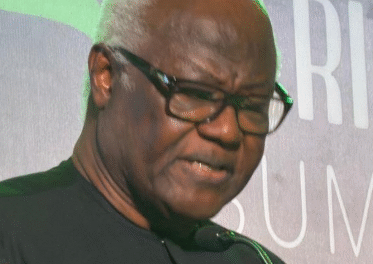By Leonard Gordon
USA,25th August 2025- The National Primary School Exam (NPSE) results were recently released with the usual brouhaha about their caliber and the dissatisfaction of students and parents alike with the marks allegedly obtained. We will delve later into why the marks are mere allegations. Unfortunately, we have seen over the years that this situation is not unique to NPSE.
Firstly, and in the interest of full disclosure, I did not take NPSE. We were the last set of students to take the Selective Entrance Exams. Fiona Davis (International School) had the best result, a 296 out of a possible 400 if my memory serves me right. I would refrain from converting the results into a percentage for reasons that might become apparent later.
The following year, the NPSE started. The best result was obtained by Conrad Carlton- Carew (Murraydeen Preparatory School) – 426 or so out of a possible 500. It has been a while, and I am slowly becoming an old man, so I stand to be corrected on these numbers. However, even if these numbers are o , I would wager they will not be o by much. Secondly, also in the interest of full disclosure, I never attended a private school in Sierra Leone. However, back in the day, when national exams results were released even government schools were jockeying for position amongst the best students in the country.
I mention this because it was not only the seemingly affluent who had dreams of good results, even the poor could dream. The likes of Tower Hill Municipal School and Akibo Betts Municipal School would produce students that could hold their own amongst the best in the country. These days, the best results almost exclusively seem to go to students from private schools. And wait till you hear how much some of these schools cost? Especially in light of the meagre sum of minimum wage in our Republic.
I have had the blessing of participating in national/ school exams on different continents and certain things are observed. First and foremost, syllabi are issued, and a scheme is produced of how grades will be obtained. This is so that when grades are issued there will be no room for discrepancies. If and when discrepancies arise, we are able to refer to the rubric and rectify said discrepancies among all parties involved. If large groups of students receive their results and are seemingly confused about and dissatisfied with their grades, then that is a disservice to those students (and their parents alike). Mrs. Bangura (God rest her soul) was my teacher in class 6. She prepared us for the exam, and I would imagine had expectations based on our performances over the school year.
If results were released and certain students performed poorly, that would raise eyebrows at the least. The reason I am filtering down to teachers and parents with regards to expectations is because I believe they know their students. They know their students because there is usually a trend or pattern in student performance which is indicative of what to expect. Some students are smart, some are playful and for some of us na God normor. A teacher (and or parent) would know this and set their expectations accordingly. A few years ago, I engaged with the then Minister of Education in a social media conversation trying to understand the results and the seeming confusion associated with them.
At the time the concept of the t-score was introduced, and the argument was that this had always been done in the preceding years going all the way back to the Selective Entrance Exams. A lot of us that took those exams seem to have forgotten that this was the case. Another argument was that even in international exams standardization is used. My counter to that argument was why do students get perfect scores in said exams. Our national literacy level is relatively low compared to international and (or) regional standards and I would consider myself a fairly educated man (albeit not dangerously). If I am having a hard time understanding what is going on with the results, then Lord knows what is happening in the minds of the average Sierra Leonean?
It is a disservice to students to take an examination and not understand the t-score (or whatever process) is used to assign grades. It is for this reason (for those who are still wondering), that I refrained from converting the results above to percentages. They are not just numbers; they are complicated numbers that most of us will not understand. When any kind of standardization happens, things are transformed from their original. The question then becomes what do the results even mean? When we say the best student had a 346, is it a 346 out of a possible 500 or is it some convoluted process that we now call t-score in which case 346 is a stand-alone number with a new denominator? Is standardization then, in other words, an adjustment, and if so, to what end? Because once you “standardize” the original score then wouldn’t you also need to standardize the original maximum possible score? As an example, in statistics there is the normal distribution. If a teacher gives a math test and grades out of a 100 and then decides to ‘normalize’ the results, the new results are not out of 100.
However, they now become how many standard deviations from the mean a student scores which can then be converted to percentiles as is usually seen with SAT scores, for example. In other countries, students get a perfect score in examinations. Why can’t we with a “quality” education do the same? Over time, there seems to be a recession of the best grade in the country from the maximum number of grades allowed. If this disservice starts now at the elementary level, it carries on into the secondary and tertiary levels. Finally, there have been rumors of inappropriate behavior between schools and WAEC. Don’t ask me what constitutes inappropriate. Nor to me mot you go yeri say reverend fart na church.
But we do know that there is no smoke without fire. If this is true that would lend credence to the allegations above that the marks are mere allegations. Na lotto. Just pick a number and assign to a student. This will also be a disservice to the students, especially those who have worked really hard. If there is a modicum of distrust in the system, then people begin to question the whole system of results. And I do realize that there are several factors that affect a student’s performance in an exam. Even geniuses have o days. I had a teacher who told us that exams are 50% what you know and 50% how fast you can do what you know.
Her point was that you could know all the questions in an exam and don’t have enough time to answer them all, in which case you might still fail even though you knew the stuff. Additionally, exam fright, though rare, is a real thing. This can also affect ones performance on an exam. The world is moving fast and education for most people is the key to opportunities. In a society like ours where we are trying to rise from the ashes and build a better country for future generations it would be great if education was a robust service to the nation rather than a seeming disservice to students for the reasons posited above.








